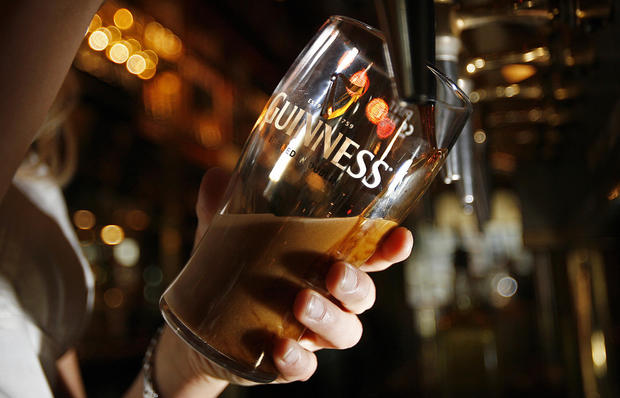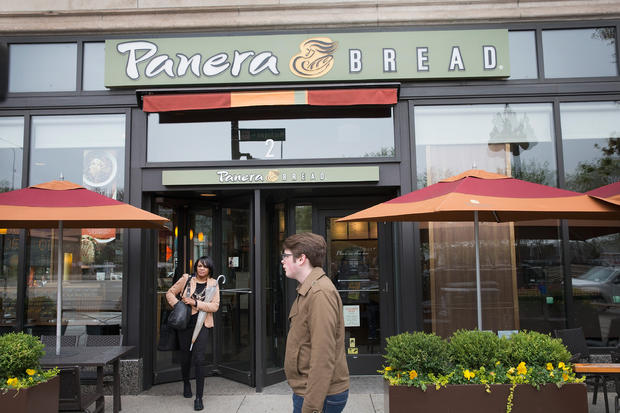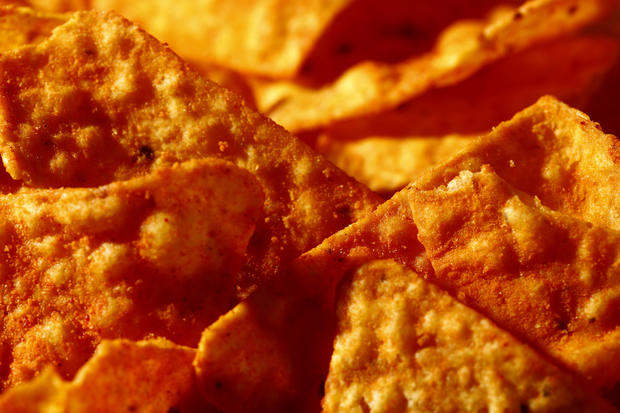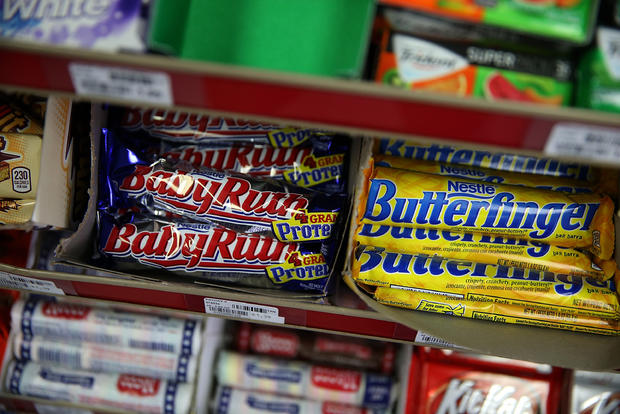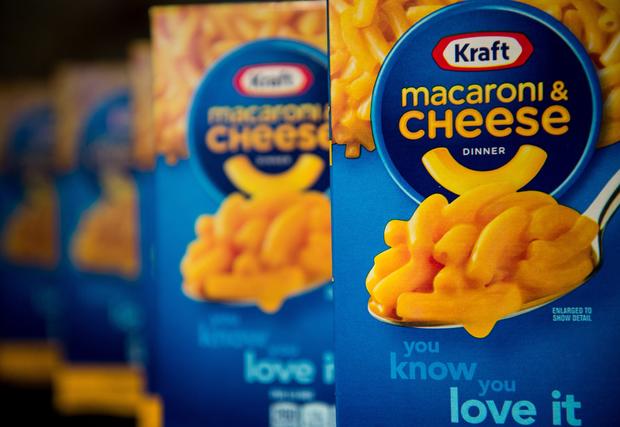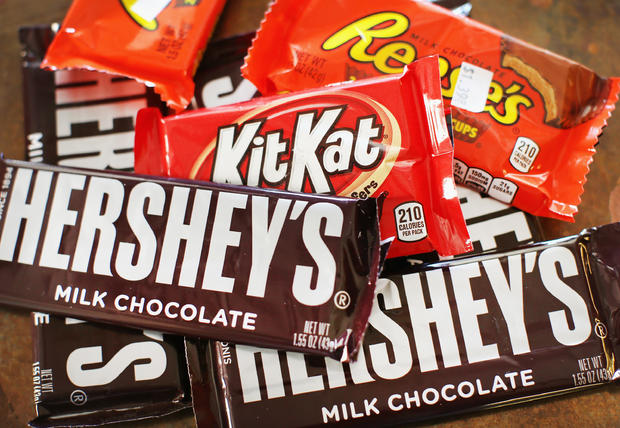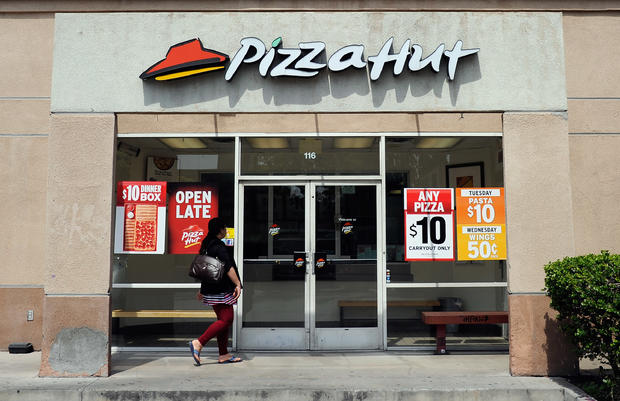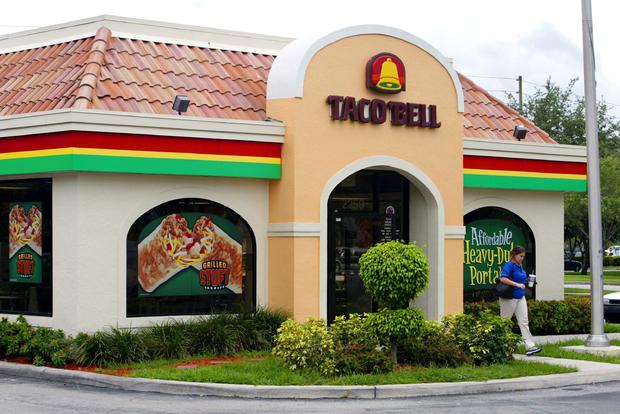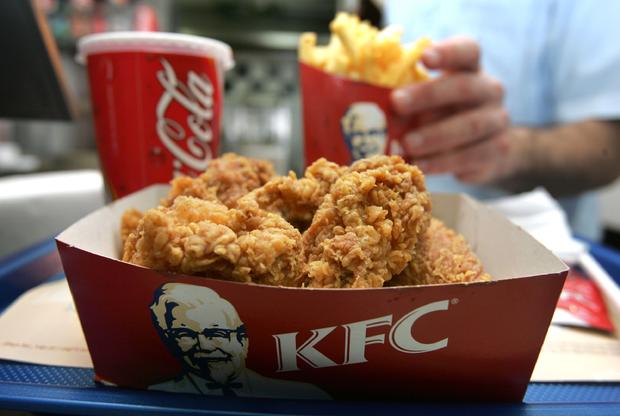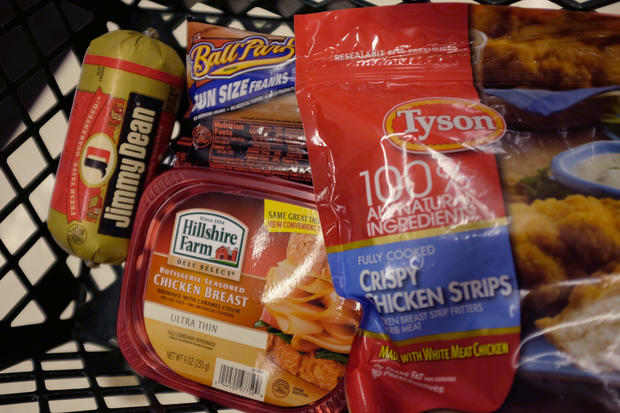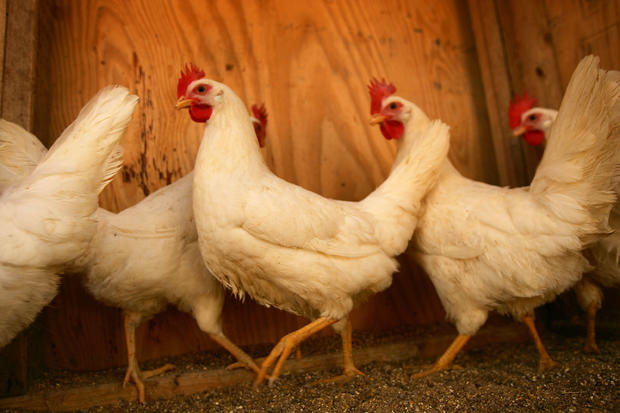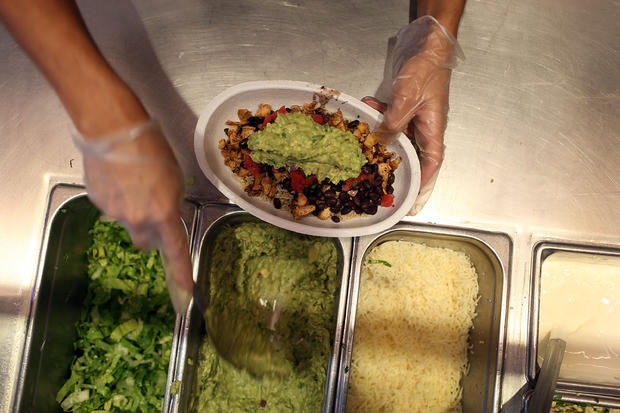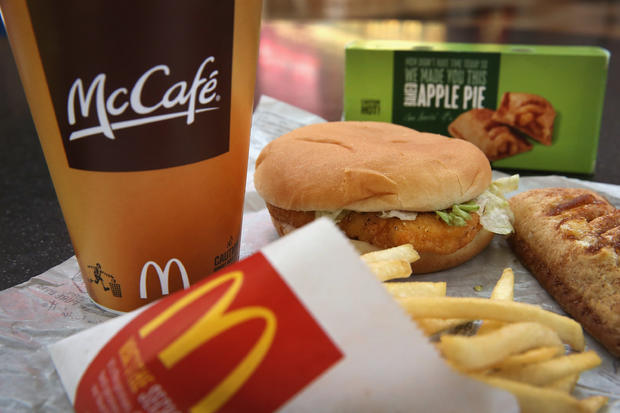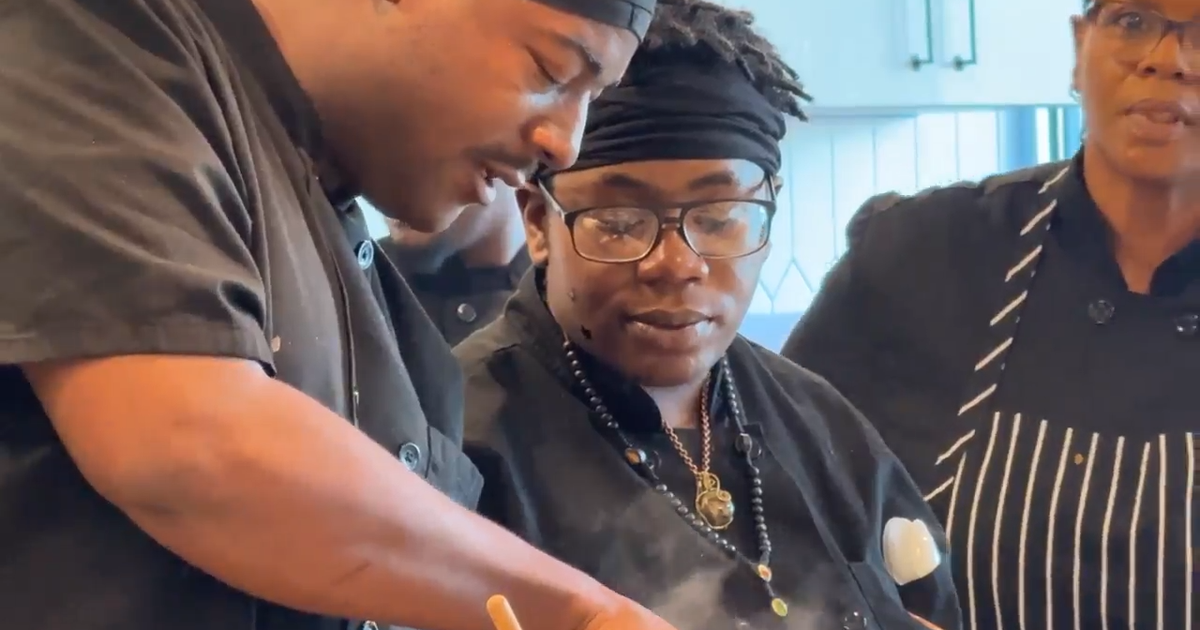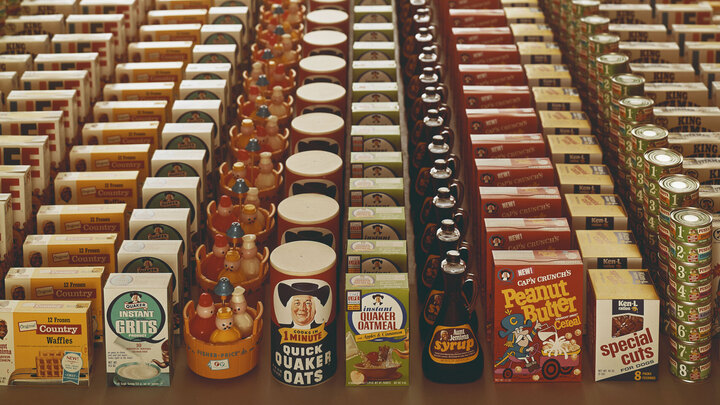Weird stuff that's no longer in your food
A number of major American food companies have come forward in recent months to say they're yanking undesirable ingredients from their products. By doing so, however, they've alerted us to what was in there in the first place ... and it ain't pretty.
Popular Dublin brewery Guinness, for example, has announced its beer will be going vegan by the end of 2016. How will they do it? By removing fish bladders from their filtration process.
Panera
Panera Bread announced this month that it has eliminated or intends to eliminate by the end of 2016 a list of more than 150 artificial colors, flavors, sweeteners and preservatives from food served in its U.S. restaurants.
So, if you're a person who craves artificial smoke flavor and glycerol ester of wood rosin, you're just going to have to get your fix somewhere else now.
Doritos
When people talk about the growing obesity epidemic, the conversation usually centers around fat, sugar and carbohydrates. In his new book, "The Dorito Effect," author Mark Schatzker argues that food flavorings, which include everything from syrups to spices and sauces, are a big part of the problem. Americans apparently consume over 600 million pounds of flavoring every year.
Doritos are a prime example of this unsettling trend. First introduced as a simple salted tortilla chip, Doritos didn't gain any substantial footing in the national consciousness until taco and nacho cheese flavoring were added later on. And that's not to mention the long list of other food dyes and additives which pique Americans' taste buds -- but that sound alarmingly artificial: Monosodium Glutamate, Corn Maltodextrin, Disodium Phosphate, Yellow 6 Lake, Yellow 5 Lake, Yellow 6 Red Disodium Guanylate, et cetera.
Nestle
You know that awesome orangey color in the center of a Butterfinger bar? That's made with a nifty combination of synthetic dyes Red 40 with Yellow 5. Yum, right?
Nestle USA announced in February 2015 that it will remove all artificial flavors and FDA-certified colors from its lineup of 250 chocolate products by the end the year. That means about 75 classic candy recipes are getting a major makeover.
Kraft Macaroni & Cheese
Last month, Kraft announced that as of 2016, their popular macaroni & cheese "will no longer be made with artificial preservatives or synthetic colors, while still delivering the same great taste that people know and love from the iconic 'blue box.'"
This decision comes after outspoken food activist Van Hari's change.org petition demanding that the company remove yellow 5 and yellow 6 from its packaged dry pasta and processed cheese mix garnered over 365,000 signatures online.
As such, Kraft will begin using natural ingredients -- like paprika, annatto and turmeric -- to give its mac & cheese that signature gooey yellow-orange look its famous for.
Translation: You can still get the "Blue Box Blues." They'll just be conjured by a more natural sort of blue now.
Hershey
One day after Nestle's February 2015 announcement, American chocolate giant Hershey announced that it, too, would begin reformulating its recipes toward simpler ingredients, this year.
Though Hershey neglected to specify any particular ingredients being cut as part of its new pledge, the company did mention that it would make its sourcing and manufacturing information more readily available, and start using locally-produced milk.
Pizza Hut
In May 2015, Yum Brands Inc. -- the parent company of KFC, Taco Bell and Pizza Hut -- announced that its popular pizza chain would remove all artificial colors and preservatives from its products by the end of July.
This move toward more natural ingredients may raise prices a bit; but Brian Niccol, the chain's CEO, says the company is working to keep its menu affordable and accessible to the masses.
"Artificial and natural flavors" have become ubiquitous terms on food labels, helping create vivid tastes that would otherwise be lost in mass production. As the science behind them advances, however, many people are calling for greater transparency about their safety and ingredients; leaving fast food giants, like Pizza Hut and Taco Bell, with little choice, but to respond.
Taco Bell
In May 2015, Taco Bell announced that it, too, would be purging its food of artificial colors and flavors by the end of the year.
Instead of "black pepper flavor," for example, Taco Bell will start using actual black pepper in its seasoned beef.
The Mexican-style chain also plans to remove artificial dye Yellow No. 6 from its nacho cheese, Blue No. 1 from its avocado ranch dressing, and carmine pigment from its red tortilla strips.
Good. Yo quiero real pepper.
KF-free?
KFC, which is also owned by YUM, has not yet said whether it will remove artificial ingredients from its fast food items, as well.
Come on, Colonel. Whip those buckets into shape.
Tyson
In April 2015, America's largest poultry producer, Tyson Foods, announced that it's committed to ridding its U.S. broiler flocks of human antibiotics, by the end of September 2017.
This move is the latest in a series of responses by major U.S. chicken companies, addressing the nation's growing issues with antibiotic resistance.
"Antibiotic resistant infections are a global health concern," Donnie Smith, president and CEO of Tyson Foods, said in the company's release announcing the move.
Perdue
The recent increase in people getting infected with superbugs, resistant to antibiotics, has been attributed by many to the widespread use of drugs on farm animals.
As such, Tyson isn't the only poultry giant tweaking their chicken-raising techniques for the healthier. Perdue Foods, announced last September that it had removed all antibiotics from its chicken hatcheries.
"By no longer using any antibiotics in our hatcheries or any human antibiotics in feed, we've reached the point where 95 percent of our chickens never receive any human antibiotics, and the remainder receive them only for a few days when prescribed by a veterinarian," said Dr. Bruce Stewart-Brown, Senior Vice President of Food Safety, Quality and Live Operations for Perdue Foods.
And the company now says it's pleased competitors are following its lead.
Chipotle
While Panera is claiming to be the first national restaurant company to share a list of unacceptable ingredients with consumers, it's certainly not the first to gravitate toward greater transparency and healthier items. Chipotle has worked its way into the good graces of both diners and investors by sourcing humanely raised meat, since its inception.
And the company announced in April 2015 that it will only use non-GMO ingredients, going forward; yet another move sure to please health-conscious consumers.
McDonald's
Companies that have provided customers with "natural" or locally sourced foods have seen an exponential return on those moves in the investment community. Chipotle, for instance, has seen its shares rise 22.5 percent in the past year, while Panera's stock has increased more than 16 percent.
By comparison, shares of McDonald's, whose food has been exposed as supporting factory farming and industrialized agriculture, have declined 5.1 percent.
In response, McDonald's (MCD) announced, this month, that it would be tweaking its menu to include chicken not raised with antibiotics important to human medicine ... A golden nugget of an idea that has served other fast food and 'fast-casual' chains well.

